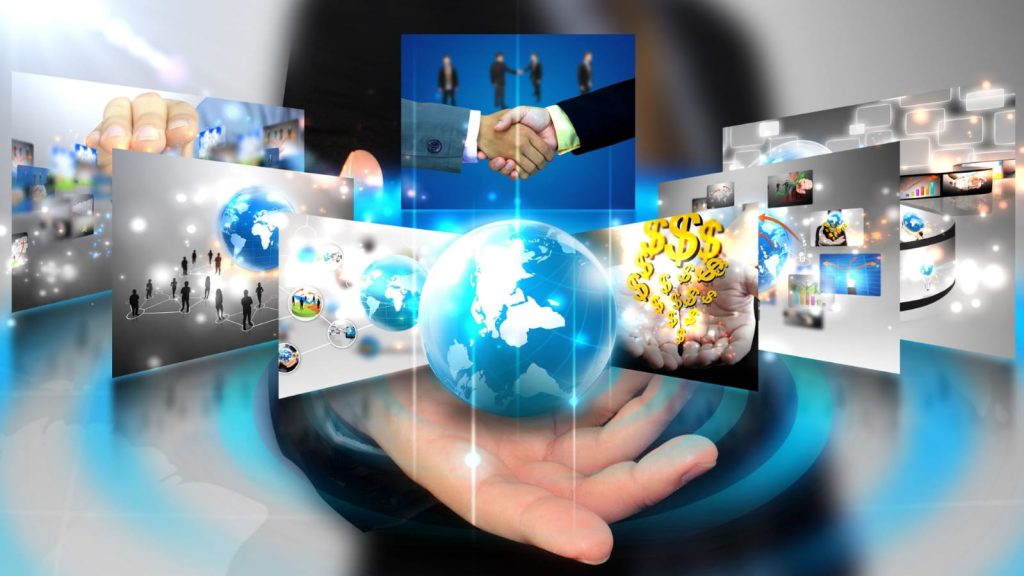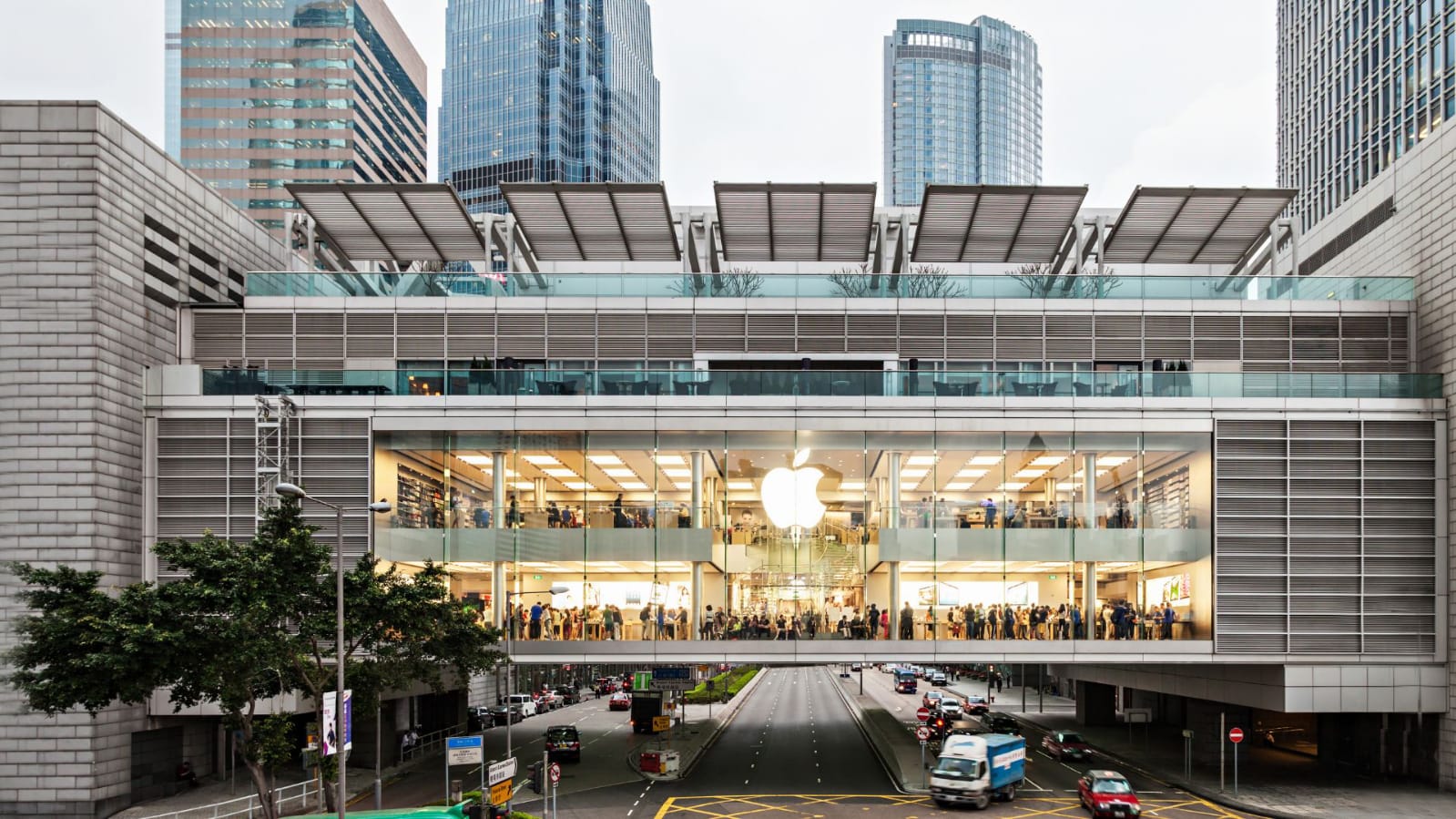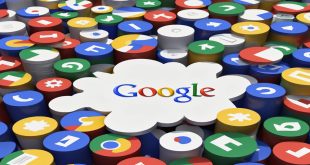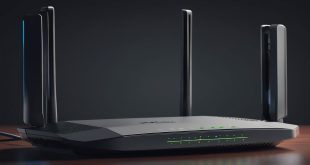Apple is in danger. Everything that they’ve created over the past 47 years—the Mac, the iPhone, the iPad, the App Store—could change dramatically over the next few years. So what is really happening? Well, you may have heard the news that the U.S. Department of Justice is suing Apple.
Earlier today, the Department of Justice was joined by 15 states and the District of Columbia. Yes, this is the largest legal case that Apple has ever been involved in. And it may change Apple forever. So here’s everything we know: Also, we have now launched our final Wolplickers pack for March, Amulet Aura by Atif. This is one of our most unique packs yet. With a full black background and then a beautiful landscape in the middle. All 10 wallpapers are in 8K, so you can actually zoom in loads and even use this middle part as the actual wallpaper. You can find Amulet Aura in our app wallpapers for iOS and Android. Okay, so this is a very complex legal case, so to make it easier to understand, I think it’s quite important to listen to both sides here. So let’s start with the Department of Justice side. What they’re saying is that Apple has become a monopoly. One that is richer than over 100 countries combined. Today, its net income exceeds the individual gross domestic product of more than 100 countries, and they’ve been using this power to behave in a very anti-competitive manner, trapping both users and developers into following their rules. They give a couple examples here, including, of course, the whole green versus blue bubble debate and the fact that if you message someone who has an Android, receipts won’t show up, photos will be limited in size and quality, plus a ton of other restrictions.
They’ve also mentioned how Apple is blocking cloud streaming apps and, in turn, forcing users to upgrade to newer iPhone models, which are required to run newer games better. And how Apple is not allowing apps to use NFC for payments. Essentially, everything has to go through Apple Pay, whereas on Android, you can use Google Pay, Samsung Pay, or even individual banking apps for contactless payments. Another of the DOJ’s arguments was how Apple does not allow super apps on iOS, like WeChat in China, which has a ton of functionality from messaging to video calls to making payments, buying movie tickets, ordering a taxi, going on maps, and so on. This is similar to Elon’s Vision 4X, the everything app. They’ve also mentioned how iPhone users have to use an Apple Watch. Otherwise, the functionality and features of Android watches will be heavily limited when paired with an iPhone. CarPlay was another one of the issues raised, and Apple has been asking car manufacturers to allow the next-gen version of CarPlay to fully take over all of the car’s sensors and screens to essentially give the entire car an Apple UI. Plus, services such as Apple Arcade, iCloud, and Apple News Plus cannot be used on Android at all.
Or how Apple is using their Apple TV Plus movies and TV shows to further push Apple products to their customers. And of course, a large part of the dog’s case was focused on the App Store. The fact that Apple prohibits any third-party stores and that, as a result, developers have to pay Apple up to a 30% monopoly rent commission. But I think that one of the most interesting arguments made by the DOJ is how their successful Entry Trust case against Microsoft from back in 1999 actually benefited the iPod, as because of it, iTunes was able to run on Windows, and hence way more people were able to buy iPods. And I can confirm that if it hadn’t been for this, I wouldn’t have been able to get my first Apple product, the 3rd generation iPad Nano, and my iPhone 3G. Both of which were instrumental in me starting my YouTube channel, as I just could not afford a Mac in Romania at that time. So as you can see, the DOJ’s claims are quite extensive, and they cover Apple’s entire business model. So what is Apple’s case here? Well, here’s their official response. Feel free to pause this video if you want to fully read it. The summary is that Apple is defending their approaches to protecting their users’ privacy and making sure that their products work seamlessly together. Something that the DOJ will hurt if successful.

For iMessage, Apple claims that it’s never been designed for other platforms, as otherwise they would not be able to verify if that third-party device has the appropriate security encryptions in place. Which I just don’t buy. There are plenty of multiplatform messaging apps out there that work just fine. and that if users want to be able to send blue bubbles to non-iPhone users, they should just get them an iPhone instead. For the super app claim, Apple wants to make sure that each app follows specific guidelines that are set based on an app’s category. And if users are simply to use a super app, then they wouldn’t really be part of Apple’s ecosystem, as they would be able to switch devices whenever they wanted. Apple’s whole argument here is that they will always do what is best for their users and their products, which is what they’ve been doing from the very beginning. So okay, now that we’ve heard both sides here, who is on the right? Well, I do see both sides here. The DOJ is right in saying that Apple has a very closed system that does require users to be fully inside their ecosystem to experience their products at their best. At the same time, Apple is also right in saying that their products and services would be worse if they were to open them up to third parties. And I think the solution is somewhere in the middle, where Apple becomes a bit more open, and they do give their users more options, but they’re not too open to the point where it undermines Apple’s core values. For example, I love my HomePod. But Siri is so bad that if I have an alarm playing on my iPhone and I tell my HomePod to stop the alarm, it will simply tell me that there is no alarm playing. So I would love to just be able to use Google Assistant on my HomePod. Sure, I could always buy Google’s Nest Hub, but I just prefer the HomePod’s sound quality and design. And I also love having features like AirPlay or being able to hold my iPhone close to it to pass a song over. And this applies to using Apple services on Android devices too. You can already get Apple Music on Android as well as Apple TV Plus. So I don’t really get why there is no Apple Photos app.
Surely, this is something that Apple can easily do. After all, we already have a pretty basic version of it on Windows, iCloud Photos. Even that is still better than nothing. And yes, you could argue that by making these changes, Apple will let users use Apple services without having to buy an iPhone, which is true. But at the end of the day, I don’t really think that this is necessarily a bad thing. After all, users who have a Mac and an Android phone will be able to use Apple services better. And if they do want to buy an iPhone, then they’ll get even more features like continuity and universal copy and paste. So I do think that Apple should still give iPhone users extra features when they’ve also got other Apple products. But we should still be able to use all of Apple’s services on Android 2 without them being limited in any way. Now I also think that some of the DOJ’s claims are a bit silly, like with the Apple Watch. Obviously, the reason it works so well with an iPhone is because it was made from scratch for the iPhone. and making it run on Android just like it does on iOS would be extremely difficult, and it would require very close collaboration between Apple and Google. Not even to mention that, despite iOS supporting third-party smartwatches, some third-party manufacturers like Samsung and Google have chosen not to. So this does actually go both ways. On the App Store side, I do believe that a number of changes are needed. For example, when we launched our app Wallpapers back in September, we initially planned to launch it before the iPhone 15’s announcement, but we’ve had a number of issues with Apple approving us, which delayed our launch until after the iPhone started shipping. Their guidelines required us to modify our login system, and we were rejected dozens of times for the same issues that we had already fixed before. So yeah, it wasn’t a great experience at all. Google, on the other hand, was great, and they’ve never rejected us once.
I also think that Apple’s fees are very high, but at the same time, so are Google’s, which are identical to Apple’s. Of course, with Google, you can just list your app on a different app store or even on your own website and avoid paying their fees, which you just can’t do with Apple. So I do think that Apple needs to open up here to give developers that option. At the end of the day, Apple has already made a lot of the changes that the Department of Justice has asked them to make in the EU because of the Digital Markets Act. 3rd-party app stores are already possible in the EU. RCS support is also coming to iMessage, which means that a lot of the restrictions when messaging Android users will be lifted. So in a way, this DOJ lawsuit is looking to force Apple to implement the same changes that the EU has already forced Apple to implement only in the US. And I think that at least when it comes to EU changes like the third-party app stores and RCS, the Department of Justice will very likely be successful here. And if this is true, then your iPhone may never be the same. And maybe that’s actually a good thing.



